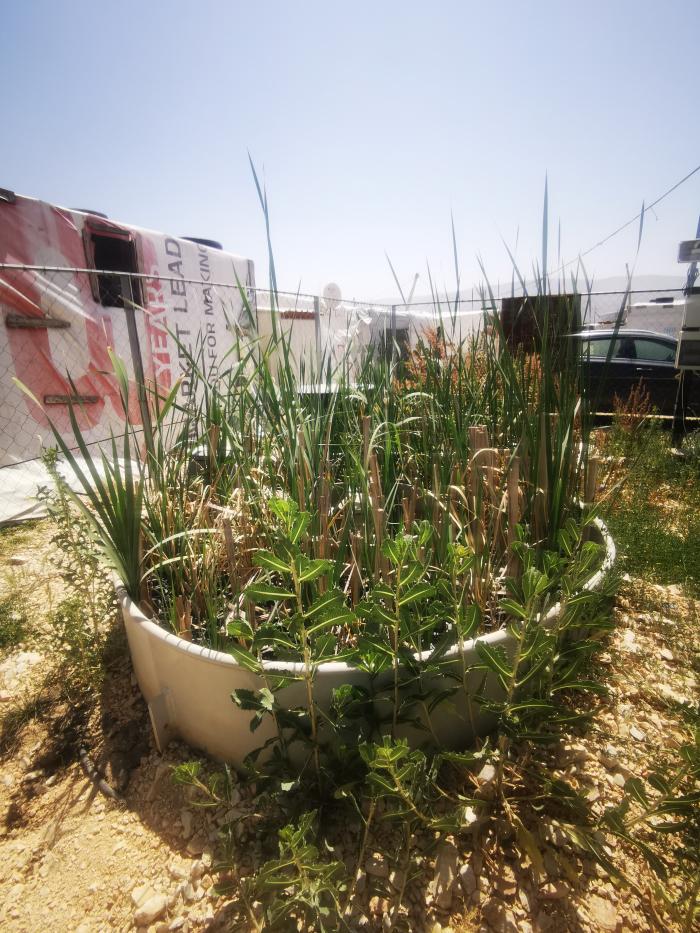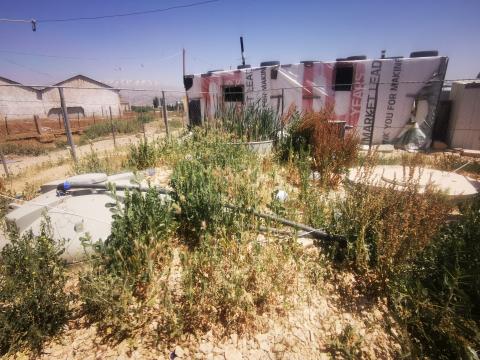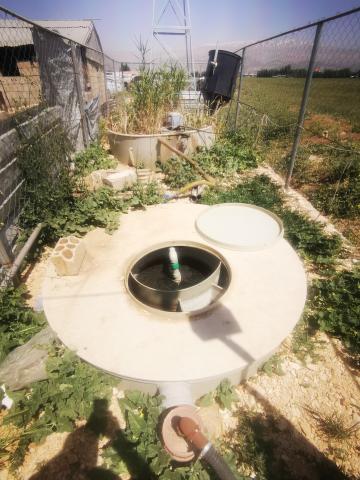Treewell in Bekaa valley


Description of the emergency context
Lebanon hosts approximately 1.5 million Syrians who have fled the war in their country since 2011. Approximately one-third of Syrian refugees in Lebanon live in informal tented settlements (ITS)in the Bekaa region.
The influx of refugee is exarcebeting the issue of sanitation in Lebanon. Before the crisis, only 8% of the wastewater was treated according to the Lebanese Ministry of Energy and Water.
Humanitarian WASH services to ITS are based largely on unsustainable solutions, particularly water trucking and latrine desludging, as it has not been possible for various reasons to put more sustainable solutions in place.

bacteria, fungi, protozoans and insects. The system is totally sludge-free and does not produce odours.
Stage one: Anaerobic
Wastewater enters anaerobic tank where microbial fermentation processes are enhanced by fixed-bed biofilm carriers. This tank is inoculated with a specially blended microbial consortium.
Stage two: Aerobic
Wastewater purified in tank 1 enters highly aerobic conditions of Tank 2 which is open to atmosphere. Selected local aquatic plants and microorganisms living in their root zone (rhizosphere)
ensure final polishing of the water. The plants are rooted in a special expanded tubular netting from Denmark. This stage of treatment results in naturally purified water.

- investigate the sources of wastewater (communal kitchen, commercial activities..)
- analyse the typical behaviour of the residents at the informal settlement (quantity of wash water and the type of detergents consumed)
- conduct a survey to understand the arrangement of the settlement plots and latrines, and the lay of the land.
All these information enable to havef:
1. holding tank sizing estimates
2. a thorough understanding of the wastewater fraction
3. identification of a suitable microbial community,
4. study of particle size and screening solution to minimize load.
5. design of an appropriate reactor system configuration.
6. design of the sanitation network and access corridors.
7. evaluation of the condition of existing facilities
8. assessment of main power supply distribution board
9. designate a location for the WWTP



2. Autonomous, low maintenance.
3. Movable and small footprint.
2. Expensive network prone to clogging
3. Does not meet environnemental Lebanese Standards
Project Details


Pathogen reduction
Reuse of treated wastewater
TSS and TDS reduction

Water

Treewell



Handwashing Facility
Pit latrines affected by groundwater infiltraton


Design and Engineering Specialist
FSM specialist for construction
FSM specialist for design
Still have questions?
You could not find the information you were looking for? Please contact our helpdesk team of experts for direct and individual support.

